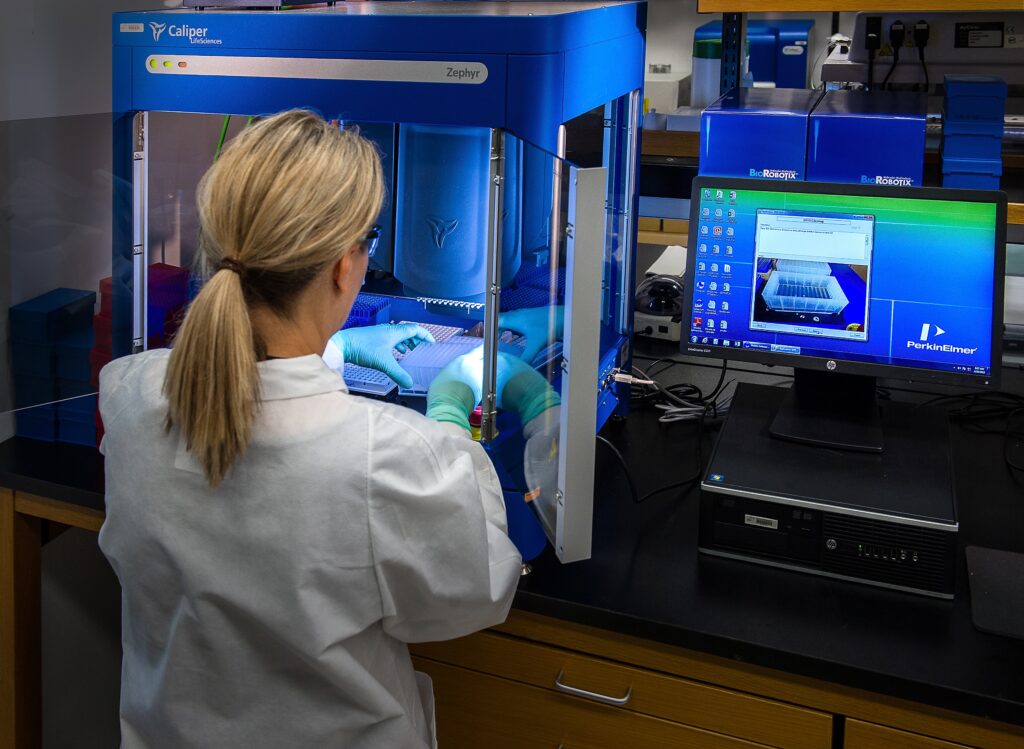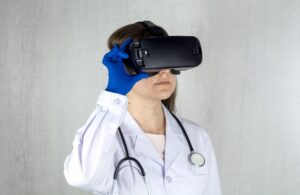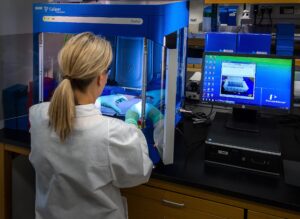
The healthcare industry has always been at the forefront of technological advancements, and the recent years have witnessed a significant surge in the use of technology in healthcare. From AI-driven diagnostics to remote patient monitoring, technology has revolutionized healthcare in unimaginable ways. In this article, we will explore the role of technology in healthcare trends and innovation.
Telemedicine
One of the most significant technological advancements in healthcare is telemedicine. Telemedicine allows patients to consult with doctors remotely, without the need for in-person visits. This has been a game-changer, especially during the COVID-19 pandemic, where physical contact is limited. Telemedicine has made healthcare more accessible and convenient, especially for people in remote areas. Moreover, telemedicine has reduced the burden on hospitals and clinics, allowing doctors to attend to more patients.
Here are a few additional points to consider:
- Precision medicine: Technology is enabling doctors to develop personalized treatment plans for patients based on their unique genetic makeup. Precision medicine uses data analytics and machine learning algorithms to identify patterns in a patient’s genetic data, enabling doctors to develop targeted treatments.
- 3D printing: 3D printing has been used in healthcare to create prosthetics, implants, and even organs. 3D printing allows doctors to create custom-fit medical devices and implants, reducing the risk of rejection and improving patient outcomes.
- Internet of Things (IoT): IoT devices can be used to monitor patient health remotely, allowing doctors to intervene before a condition worsens. For example, IoT-enabled sensors can be used to monitor a patient’s glucose levels, enabling doctors to adjust insulin dosage remotely.
- Blockchain: Blockchain technology can be used to securely store patient data and ensure patient privacy. Blockchain can also be used to track the supply chain of medications, reducing the risk of counterfeit drugs entering the market.
- Augmented Reality (AR): AR technology has been used in surgery to overlay 3D models onto a patient’s body, enabling doctors to visualize complex anatomical structures. AR can also be used to train medical students and improve surgical outcomes.
These are just a few additional points to consider when discussing the role of technology in healthcare trends and innovation.

AI-driven diagnostics
AI has revolutionized diagnostics in healthcare. AI-powered tools can analyze vast amounts of medical data and identify patterns that can be used to diagnose diseases accurately. AI-powered diagnostics have been used to detect cancer, heart diseases, and other critical illnesses. These tools not only diagnose diseases accurately but also help doctors develop personalized treatment plans based on the patient’s unique medical history.
Wearable technology
Wearable technology has transformed healthcare by enabling remote patient monitoring. Wearable devices can track a patient’s vital signs, such as heart rate, blood pressure, and oxygen levels, and send the data to healthcare providers in real-time. This has been particularly useful for patients with chronic conditions who need continuous monitoring. Wearable technology has also helped patients take control of their health by encouraging them to lead a healthier lifestyle.
Electronic Health Records
Electronic Health Records (EHR) have made healthcare more efficient by streamlining patient data. EHRs allow healthcare providers to access patient information in real-time, reducing the need for manual data entry and reducing the chances of medical errors. EHRs also enable patients to access their medical records remotely, allowing them to keep track of their health status and share their medical history with healthcare providers quickly.
Virtual Reality
Virtual Reality (VR) has found numerous applications in healthcare, including pain management, surgical training, and therapy. VR can create immersive environments that simulate real-life scenarios, helping patients cope with pain and anxiety. VR is also being used to train surgeons, enabling them to practice surgical procedures in a safe and controlled environment. Moreover, VR therapy has been used to treat mental health disorders such as anxiety and PTSD.
- Precision medicine is a significant breakthrough in healthcare that enables doctors to develop targeted treatments based on a patient’s unique genetic makeup. By analyzing a patient’s genetic data, doctors can identify specific mutations or genetic variations that are associated with certain diseases. This information can be used to develop personalized treatments that target these genetic variations, improving patient outcomes and reducing side effects.
- 3D printing is another technological advancement that has revolutionized healthcare. 3D printing allows doctors to create custom-fit medical devices, implants, and even organs. For example, 3D-printed prosthetics can be customized to fit a patient’s unique body shape and size, improving comfort and mobility. 3D-printed implants can also be designed to fit a patient’s anatomy precisely, reducing the risk of rejection and improving overall success rates.
- The Internet of Things (IoT) is a network of devices that are connected to the internet and can exchange data with each other. IoT devices can be used to monitor patient health remotely, allowing doctors to intervene before a condition worsens. For example, IoT-enabled sensors can be used to monitor a patient’s heart rate, blood pressure, and oxygen levels, enabling doctors to adjust treatment plans remotely.
- Blockchain is another technological advancement that has found numerous applications in healthcare. Blockchain technology can be used to securely store patient data and ensure patient privacy. By using a decentralized database, blockchain can prevent unauthorized access to patient data and reduce the risk of data breaches. Blockchain can also be used to track the supply chain of medications, reducing the risk of counterfeit drugs entering the market.
Conclusion
Technology has revolutionized healthcare by enabling remote patient monitoring, personalized treatment, and accurate diagnostics. From AI-powered diagnostics to telemedicine, wearable technology to electronic health records, technology has transformed healthcare in unprecedented ways. The use of technology in healthcare is still in its early stages, and we can expect to see more innovative solutions in the future. The role of technology in healthcare trends and innovation cannot be understated, and its impact will be felt for years to come.






